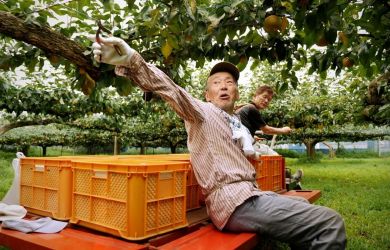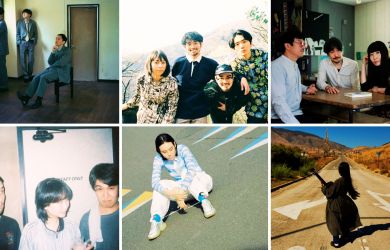
March 4, 2010
Embassy Community Action Program
Diplomacy at the person-to-person level
By Metropolis
Originally published on metropolis.co.jp on March 2010

Courtesy of the Embassy Community Action Program
As George Washington once observed, “a slender acquaintance with the world must convince every man that actions, not words, are the true criterion of the attachment of friends.” And it’s equally true that a strong spirit of volunteerism could do just as much for American diplomacy as snappy speeches and promises.
That’s a philosophy that seems to be alive and well at the United States Embassy in Tokyo. Since 2007, its Embassy Community Action Program (ECAP) has been reaching out to local organizations and individuals in an effort to build stronger bonds between Americans and Japanese. The program organizes monthly volunteer opportunities that embassy staff and their families can participate in.
Sarah Okawa, one of the embassy’s Japanese staff and co-coordinator of the ECAP, explains their philosophy: “As [former] Ambassador [J. Thomas] Schieffer once put it, I would like Japanese people to see that ‘America has a big heart.’ Through ECAP events and by directly interacting with American people, I would also like Japanese people to see the diversity of American people at the person-to-person level.”
After spending a year as a high school foreign-exchange student in the US, Okawa wanted to find a way to work for both America and Japan. She landed a position with the Tokyo American Center, which is part of the public diplomacy arm of the State Department, and teamed up with a consular officer named Jeff Weinshenker to pitch the idea of an embassy-wide community outreach program.
That pitch evolved into the ECAP, which has since organized numerous volunteer and community outreach events, including neighborhood clean-ups, food drives, US-Japan friendship basketball games, visits to local children’s homes and nursing homes, and assisting at centers for people with special needs.
More recently, there was “Take a Child to Work Day” at the US Embassy, when kids from the Nonohana-no-ie and Shisei Gakuen children’s homes came to the embassy for lunch, met with Ambassador John V. Roos and other staff, and toured the embassy’s TV studio. There was also a neighborhood beautification project in conjunction with officials in Minato-ku, attended by Susan H. Roos, the Ambassador’s wife. The Marine Corp service members have gotten in on the act, too, organizing a holiday toy drive for shelter children.
The ECAP faced hesitancy from some organizations who were concerned about the language barrier and the possibility of cultural misunderstandings. Okawa regards the initial negotiations with those organizations as key. “[Co-coordinator Jamie Roane and I] usually initiate contacts from scratch by identifying an appropriate group online, making a cold call, and letting them develop trust in us by paying a few courtesy calls and having face-to-face meetings with the people running the group. Many organizations take a while before they get comfortable with the idea of welcoming a group of non-Japanese volunteers. So this warm-up period is the most time-consuming, but it’s a crucial part of the overall planning.”
After the events, however, the responses have been overwhelmingly positive. Masaki Togami, deputy director of Nonohana-no-ie, said, “We are most grateful for the US Embassy volunteers, who created person-to-person contact with children who would never have met Americans in their lifetimes. [They] helped broaden the children’s views and understanding of the world.”
Okawa is quick to point out that the positive influence runs both ways. “On a countless number of occasions, I sensed that both the Japanese and American people were getting to know one another as people, sharing a laugh and realizing that we are not as different as we thought we were,” she says. “Those ‘connecting’ moments are what have made the biggest impression on me.”
In the future, the ECAP would like to increase its Web presence and make more regular visits to participating organizations. Okawa says they are also hoping to find a suitable partner organization dealing with animal welfare, and want to expand outside of the Tokyo area.
At a time when US-Japan relations are strained in the face of issues such as the relocation of the Futenma Air Base, the goodwill created by the ECAP and similar organizations may do much to present a positive image on both sides of the Pacific. As another great American, Thomas Jefferson, once said, “The good opinion of mankind… moves the world.”
To find out more about the ECAP, see http://japan.usembassy.gov/ecap or contact Sarah Okawa at banana_bread@yahoo.com.





